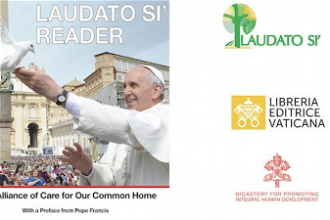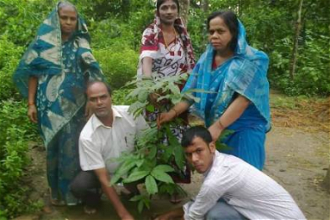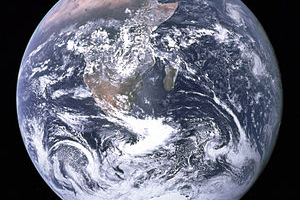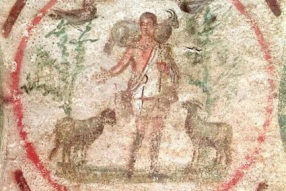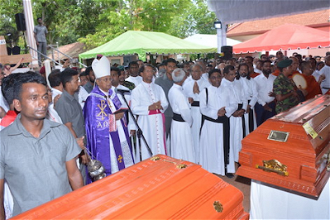Naomi Klein endorses 'Laudato Si' ahead of Vatican climate conference
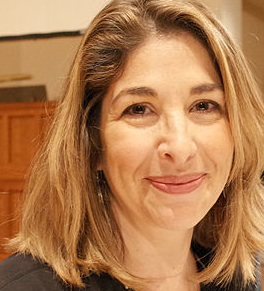
Naomi Klein - Wiki image
A Catholic climate scientist and a secular Jewish feminist shared a platform in the Vatican press office on Wednesday to present a two day conference entitled 'People and Planet First: the Imperative to Change Course'. The gathering, which is taking place at the Pontifical Augustinianum University in Rome, includes around 200 political, religious and civil society leaders from all continents who will be discussing Pope Francis' new encyclical 'Laudato Si' in light of a climate summit to be held in Paris next December.
The two day conference, which opens today, has been organised by the Pontifical Justice and Peace Council, together with CIDSE, an international alliance of Catholic development agencies.
Canadian author and activist Naomi Klein, known for her bestselling book 'No Logo', admitted she was surprised and moved to be invited to the Vatican to speak about ways of mobilizing public opinion and putting pressure on political leaders. The Pope's encyclical, she said, is a poetic, but also courageous and common sense document that speaks not just to the Catholic world, but "for every person living on this planet". It forcefully confronts the fact that our unbridled models of development and technological progress have unleashed "natural forces that are far more powerful than even our most ingenious machines", yet many are still in denial about the path of environmental destruction we're headed down. Even critics who accept the document's moral authority and scientific data, she said, insist the Pope should leave the economic policy to the experts.
"I forcefully disagree. The truth is we have arrived at this dangerous place partly because many of those economic experts have failed us, wielding their powerful technocratic skills without wisdom. They produced models that placed scandalously little value on human life, particularly on the lives of the poor, and placed outsized value on protecting corporate profits and economic growth".
Echoing Klein's warning was German scientist Professor Ottmar Edenhofer, co-chair of the Intergovernmental Panel on Climate Change. The new encyclical, he said, must not be reduced to a document on the environment but should be understood for the revolutionary way it links ecology on a par with poverty reduction, describing the planet's natural resources as "a common good of all and for all"
"This statement on the common destination of goods is for the first time in the history of Catholic social teaching, applied to global carbon sinks, which includes the oceans, the atmosphere, the forests and partially land.....the use of this Commons is a basic human right and its distribution is to be applied according to the principles of justice"
Another German, Bernt Nilles, General Secretary of the CIDSE network, noted the Catholic Church already has a strong track record of campaigning on environmental and social justice concerns- including a statement of specific requests about ending fossil fuel dependency, presented by bishops to world leaders attending the last climate summit in Lima last December.
Ahead of the Paris summit, he said, hundreds of thousands of people are preparing to converge in a faith pilgrimage to insist the politicians come up with a "fair, ambitious, legally binding agreement" on moving from carbon to renewable energy economies in the next couple of decades. World leaders must hear the voice of the most vulnerable, Nilles said,, but as the Pope's encyclical points out, this is also about me and my lifestyle too: that's why CIDSE has launched a new website 'Change for the Planet, Care for the People' to help each one of us be a part of the growing global movement towards a more sustainable way of living.
Cardinal Turkson emphasised that the title of the conference, which focuses on climate change, clearly indicates the aim to be pursued: "people and planet, not one or the other, not one at the expense of the other". He noted that in his recent Encyclical 'Laudato si', the Pope proposes an integral ecology that respects its human and social dimensions, and shows that climate change is one of the main challenges facing humanity in our times, also highlighting that the climate is a common good, belonging to all and meant for all. "Yet the costs of climate change are being borne by those least responsible for it and least able to adapt to it - the poor. Overall, climate change is a global problem with a spectrum of serious implications: environmental, social, economic and political". In 'Laudato si'', the Pope also laments the failure of past global summits on the environment, and launches an urgent appeal for enforceable international agreements to stop climate change.
In this respect, Cardinal Turkson observed, the COP21 Conference held in Paris from 30 November to 11 December 2015 will be crucial in identifying strong solutions to the problem of climate change. The Sustainable Development Goals are also relevant in this context, and coincide in various aspects with the points made by Pope Francis in his Encyclical. "For example, the 13th proposed goal will express the imperative to take urgent action to combat climate change and its impacts.
Related goals include: make cities and human settlements inclusive, safe, resilient and sustainable; ensure sustainable consumption and production patterns; conserve and sustainably use the oceans, seas and marine resources for sustainable development; protect, restore and promote sustainable use of terrestrial ecosystems, sustainably manage forests, combat desertification, and halt and reverse land degradation and halt biodiversity loss".
"These goals, similar to important points made in 'Laudato si'', await the pledges and the will of the whole world community during the 70th United Nations General Assembly beginning in mid-September 2015. Yet the single biggest obstacle to the imperative to change course is not economic, scientific or even technological, but rather within our minds and hearts. The same mindset which stands in the way of making radical decisions to reverse the trend of global warming also stands in the way of achieving the goal of eliminating poverty. A more responsible overall approach is needed to deal with both problems: the reduction of pollution and the development of poorer countries and regions. ... The political dimension needs to re-establish democratic control over the economy and finance, that is, over the basic choices made by human societies. This is the path the entire human family is on, the one which leads through New York to Paris and beyond", concluded the prelate.
Source: Vatican Radio/VIS



